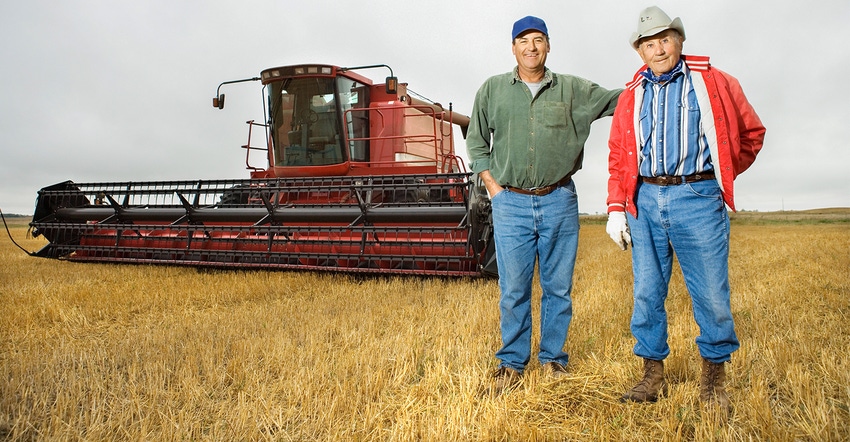
September’s Profit Planner question addressed this issue: “I’ve been blessed with having the next-gen take over my farm’s management. What’s the best future role for a farm founder — chairman of the board, consultant, outside investor, truck driver or shop putterer? Is there a best way to ease into retirement?”
Many farm families struggle with this question. Some even argue retirees should stay “in the pasture” and out of the way.
Profit Planner Panelist Glenn Rogers takes another look at this common family business issue. He comes at it from the viewpoint of a seasoned farm owner, consultant and former Extension farm management specialist at University of Vermont.
Any of the above is the appropriate answer, as long as the next generation has the lead — and when your encouragement and wisdom is wanted, warranted and appropriate, says Rogers. It must be seen as helpful by the new management/ownership.
Just stopping work is not how to get into retirement, he warns. Too many who just stopped work are discouraged and have medical problems within five years. The farm can be important to your retirement health.
Sliding into retirement can be very, very difficult when your heart and soul has been the farm for 35 or more years, he notes. Your next-gen needs to understand that.
Don't forget, though, that you probably have a lot of "bucket list" items besides the farm, Rodgers says. Your next-gen needs to encourage it. That bucket list typically includes some traveling, perhaps outdoor activities, probably work on the house/camp, vehicles, finding some old classmates and trying a new venture.
Retirement may include helping out ��— not running the farm. Let management decisions be that of the next generation.
You may need to be available, helpful, interested, even a wise-owl mentor who has been through the wringer a few times, he adds. Be a consultant when asked, a truck driver when needed, maybe even an outside investor who can provide low-interest rates until the farm can afford higher bank rates. You can be the fixer-upper when they need someone in the shop who knows the ropes.
Occasionally, you may be asked to be chairman of the board who can instill leadership in others and pose decision-leading questions to management. Then, let management put into place actions needed to increase profits, success, stability and future growth.
Now comes the hard part …
The trick is to be satisfied with allowing the next-gens’ decision to be independent of yours, he advises. Remember, the younger generation will do things differently, make mistakes and view success differently than you.
Knowing when to be available, when to step in and when to step back is critical. So is knowing how to direct questions, conversations and foster leadership.
How your next generation succeeds is a testament to you.
“You mentioned you’ve been blessed with the next generation taking over management,” Rodgers says. “Perhaps the best way to learn what your future role is to be is to ask them. Ask them to think about it for maybe a week. Then set aside some time to talk about it and write down their recommendations. Then make some retirement decisions based on them.”
In any case, save some time for you and your spouse, Rodgers advises. Don’t forget that bucket list — your life partner’s, too. Keep adding to your bucket list. Mix it up. Keep busy. Keep learning. Keep working at some level.
For the rest of the panel’s advice, see "7 best paths for retiring farmers to consider."
About the Author(s)
You May Also Like




